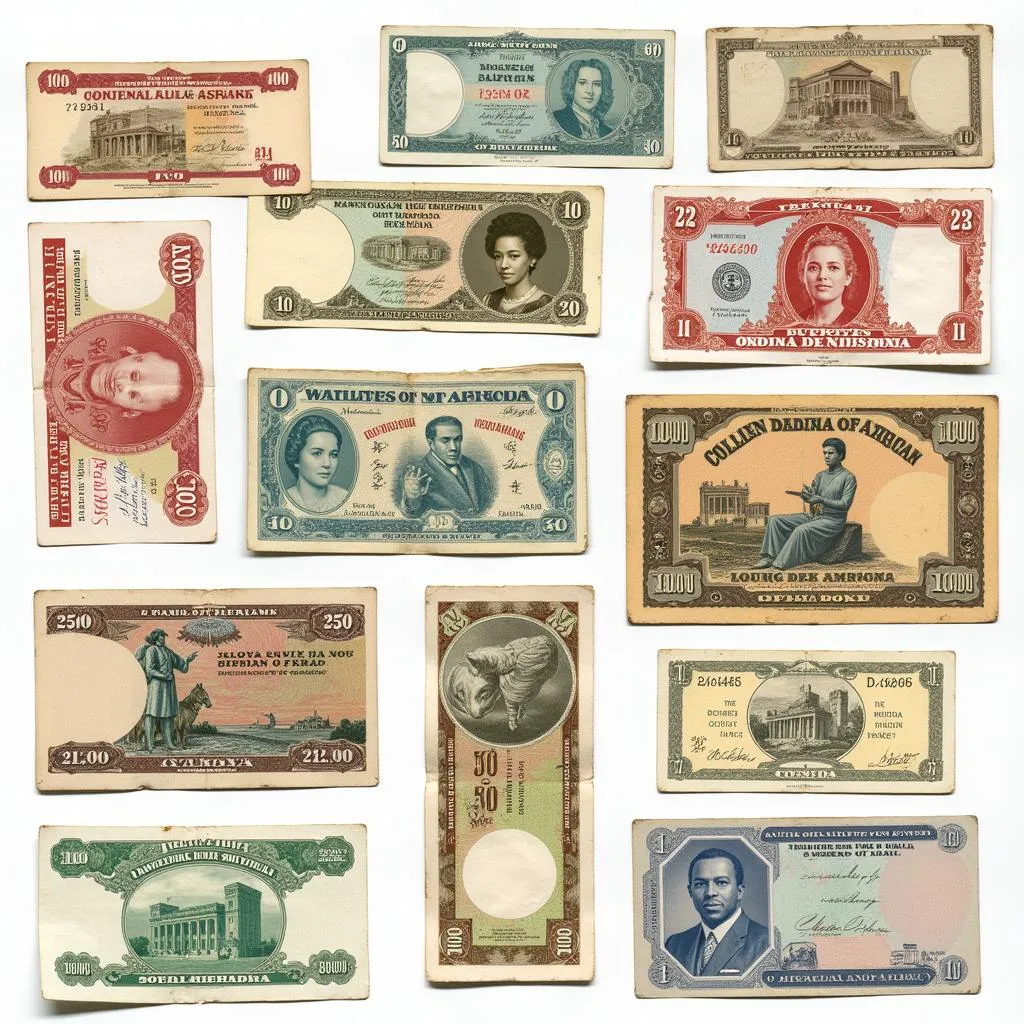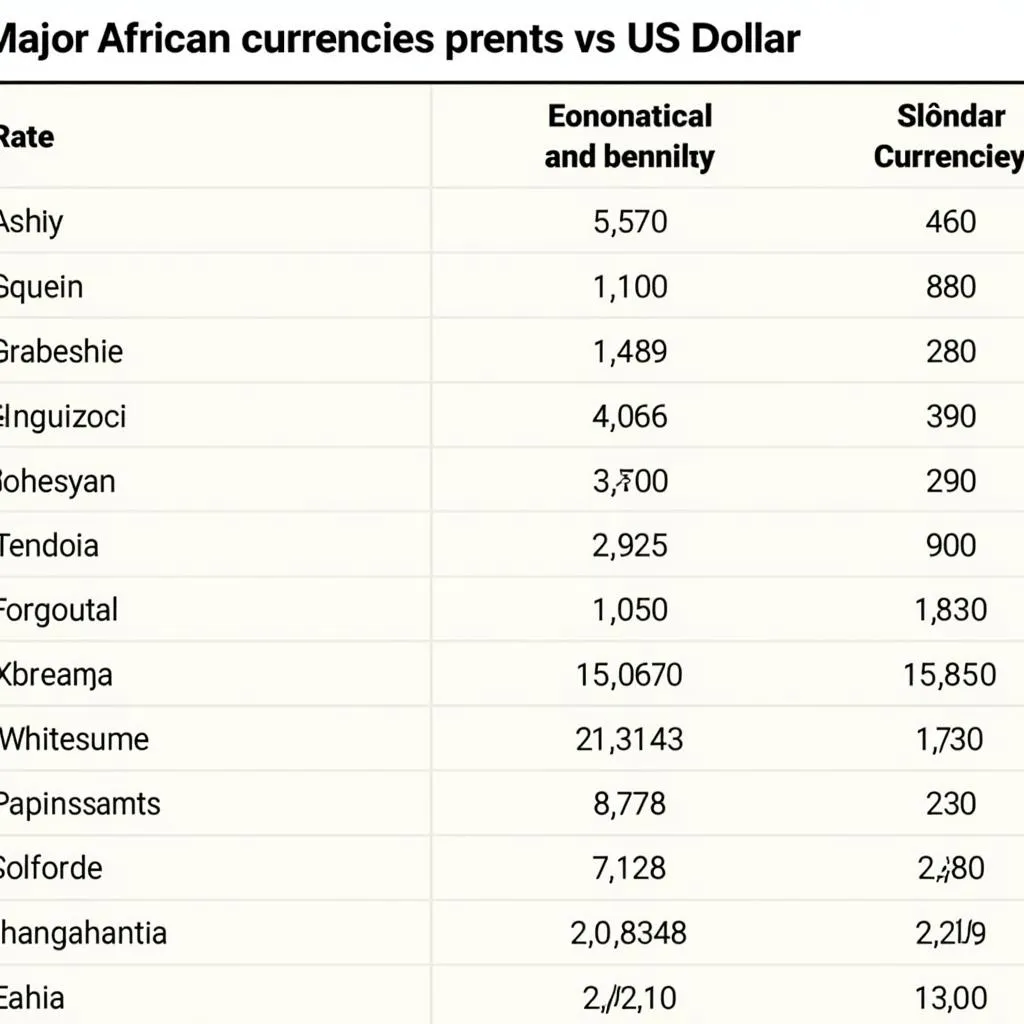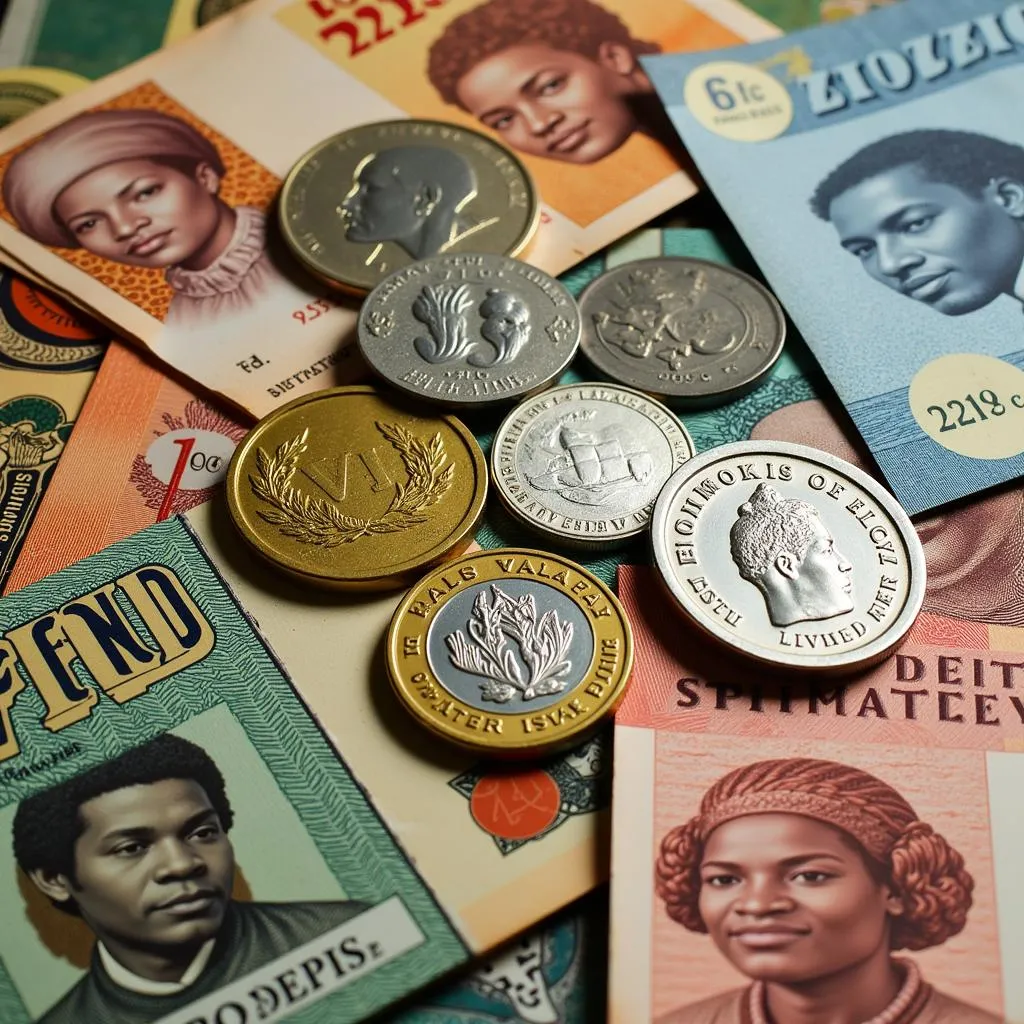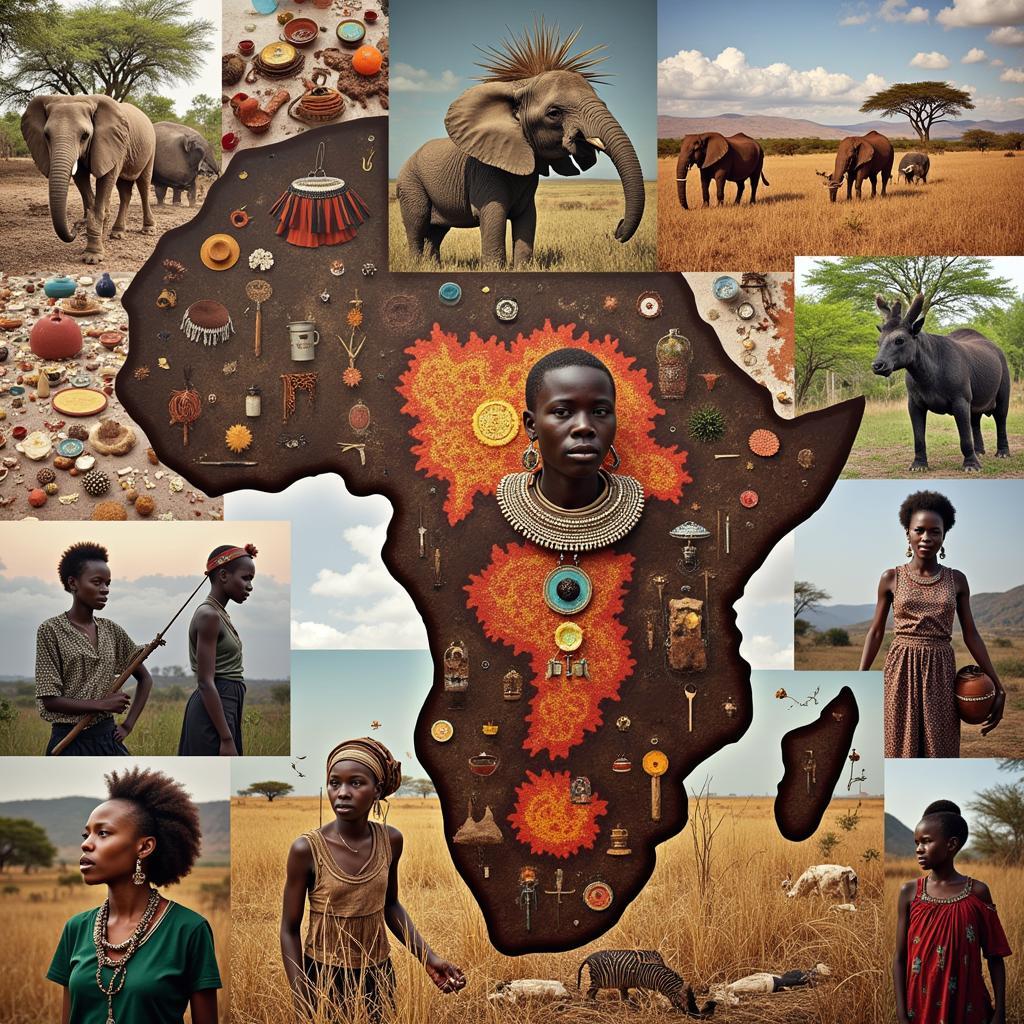Unveiling the Tapestry: A Guide to African Currency
Africa, a continent pulsating with vibrant cultures and diverse landscapes, also boasts a fascinating array of currencies. Each nation tells its own story through its monetary system, reflecting its history, economy, and aspirations. Understanding African currency is a journey into the heart of the continent’s economic complexities and cultural richness.
From Colonial Legacies to Modern Economies: The Evolution of African Currencies
The history of African currency is intricately woven with its colonial past. Many nations initially adopted currencies introduced by their European colonizers, often pegged to the value of the colonial power’s currency. This legacy left a lasting impact, with some countries retaining the names of their currencies even after independence.
 Evolution of African Currencies
Evolution of African Currencies
However, as African nations forged their own paths, they sought to establish their own monetary systems, reflecting their newfound autonomy and economic aspirations. The process of currency creation and reform has been a dynamic one, marked by periods of stability, devaluation, and in some cases, the formation of regional monetary unions.
Exploring the Diversity: Major Currencies and Regional Blocs
The African continent is home to a diverse array of currencies, each with its own unique characteristics and exchange rates. Some of the most widely traded African currencies include the South African Rand (ZAR), the Moroccan Dirham (MAD), the Nigerian Naira (NGN), and the Egyptian Pound (EGP). These currencies play a vital role in regional and international trade, reflecting the economic strength and stability of their respective countries.
 African Currency Exchange Rates
African Currency Exchange Rates
In addition to individual national currencies, several regional monetary unions have emerged in Africa, aiming to foster economic integration and stability. The West African Economic and Monetary Union (WAEMU), for example, uses the CFA Franc, pegged to the Euro, as its common currency. Similarly, the Central African Economic and Monetary Community (CEMAC) also utilizes the CFA Franc, pegged to the Euro. These regional blocs play a significant role in promoting cross-border trade and investment within their respective zones.
Factors Influencing African Currency Fluctuations
The value of African currencies, like any other currency, is influenced by a multitude of factors, both internal and external. Key drivers include:
- Commodity Prices: Many African economies are heavily reliant on the export of commodities such as oil, gold, and agricultural products. Fluctuations in global commodity prices can significantly impact currency valuations.
- Economic Performance: Strong economic growth, low inflation, and stable political environments tend to attract foreign investment and strengthen currencies. Conversely, economic downturns and political instability can lead to currency depreciation.
- Monetary Policy: Central banks play a crucial role in managing exchange rates through interest rate adjustments, reserve requirements, and other monetary policy tools.
- External Factors: Global economic trends, such as interest rate decisions in major economies and geopolitical events, can also impact African currency valuations.
African Money Name: A Window into Culture and Heritage
Beyond their economic value, African currencies often carry profound cultural and historical significance. The names of currencies, designs of banknotes, and even the coins themselves often reflect national symbols, historical figures, and cultural motifs.
For instance, the South African Rand, named after the Witwatersrand gold mining region, symbolizes the country’s rich mineral resources. The Kenyan Shilling, named after the British East African Shilling, reflects the country’s colonial past. And the Botswana Pula, meaning “rain” in Setswana, highlights the importance of water in this arid nation.
 African Currency Designs
African Currency Designs
The Future of African Currency: Towards Greater Integration and Innovation
As Africa continues to integrate economically and embrace technological advancements, the future of African currency is poised for exciting developments. There is growing interest in exploring digital currencies and the potential for a single African currency, which could streamline trade and foster economic growth.
Expert Insight:
“The move towards a single African currency is a bold vision, but one that holds immense potential for unlocking Africa’s economic potential. By reducing transaction costs and eliminating exchange rate volatility, a single currency could boost intra-African trade and attract foreign investment.” – Dr. Amani Ndlovu, Economist and Currency Specialist
While challenges remain, the ongoing evolution of African currency reflects the continent’s dynamism and its determination to forge a prosperous future.
Conclusion: Embracing the Rich Tapestry
From the colonial legacies to the modern-day aspirations, African currency tells a captivating story of resilience, transformation, and the pursuit of economic independence. By understanding the complexities of African currencies, we gain valuable insights into the continent’s economic landscape, its cultural heritage, and its journey towards a brighter future.
Need assistance with African currencies? Contact us at +255768904061, kaka.mag@gmail.com, or visit us in Mbarali DC Mawindi, Kangaga, Tanzania. Our team is available 24/7 to assist you.
FAQ
- What is the strongest African currency? The strongest African currency is the Libyan Dinar (LYD).
- How many countries in Africa use the Euro? No African countries officially use the Euro as their national currency, although some countries peg their currencies to the Euro.
- What are the challenges of using different currencies in Africa? Using different currencies in Africa can lead to high transaction costs, exchange rate volatility, and complexities in cross-border trade.
- Is there a plan for a single African currency? The African Union has a long-term vision of establishing a single African currency, but significant challenges remain in terms of economic convergence and political will.
- Where can I find reliable information on African currency exchange rates? Reputable financial websites, such as Bloomberg and Reuters, provide up-to-date information on African currency exchange rates.
Explore these related articles for further insights:
- African Capital and Currency Race Institute YouTube
- African Countries Currency Rating
- African Money Name
Need more information? Contact our team of experts. We’re here to help you navigate the world of African currency.
